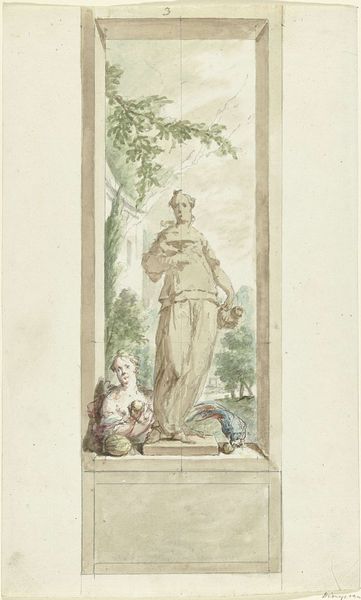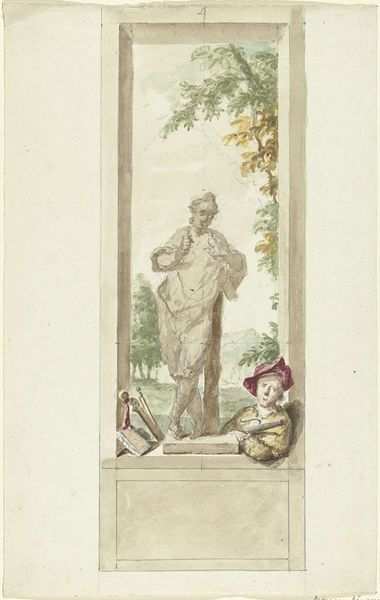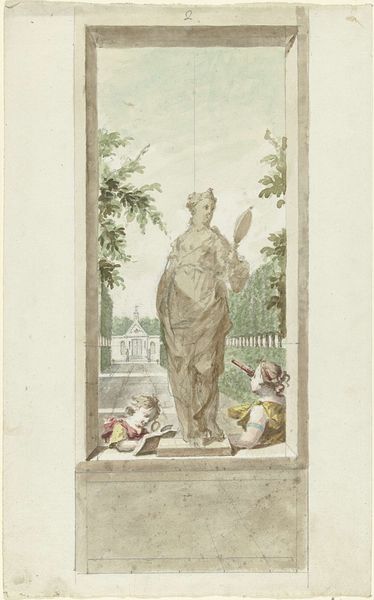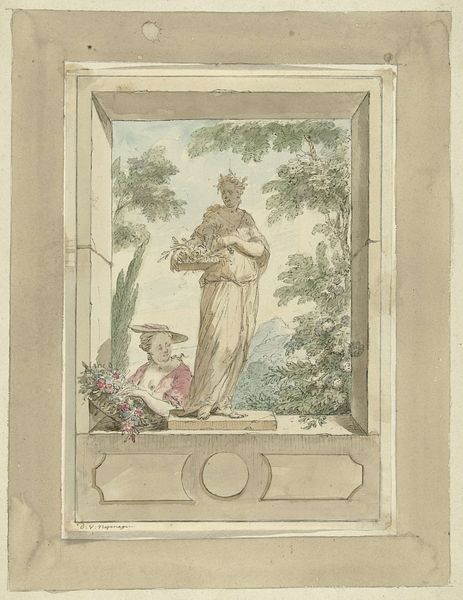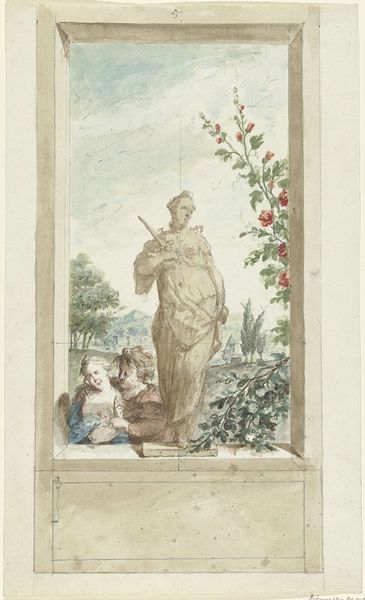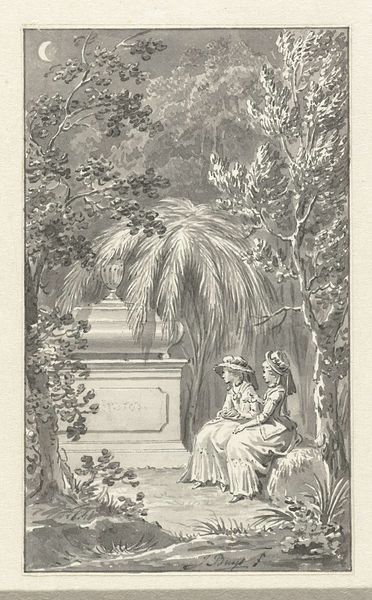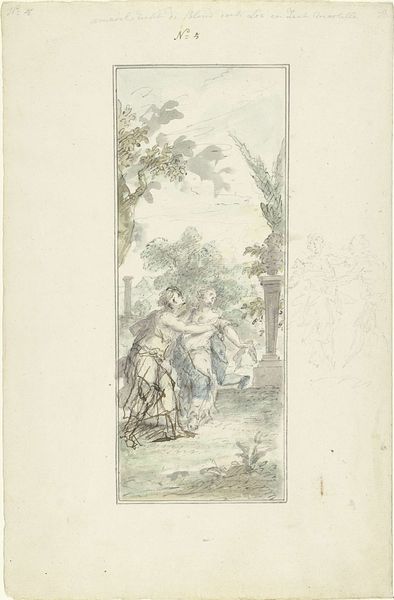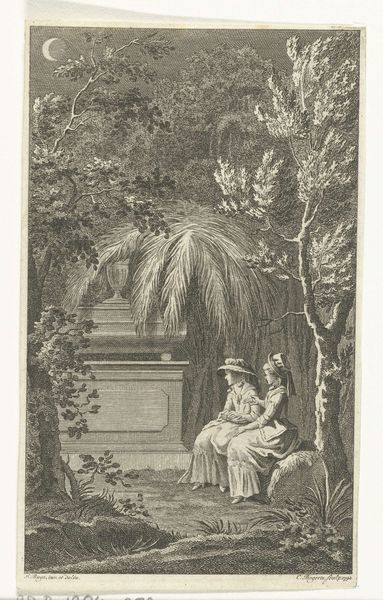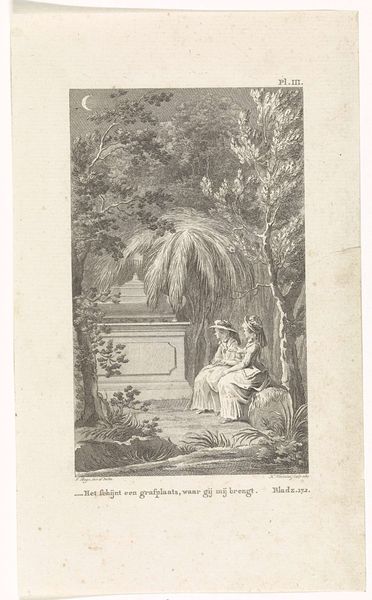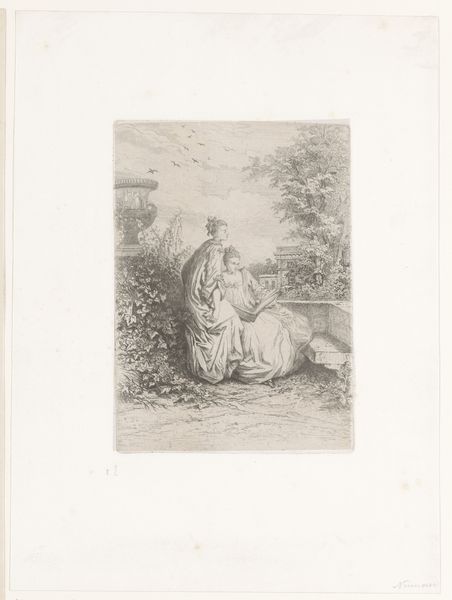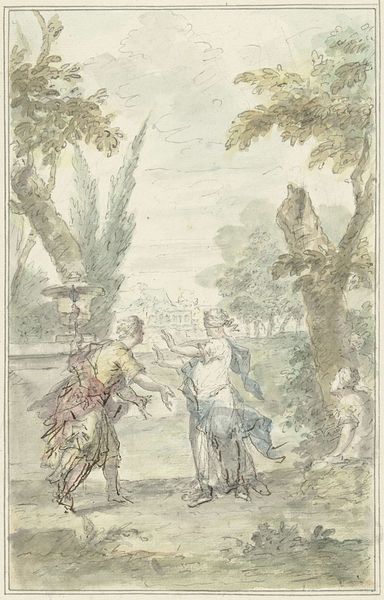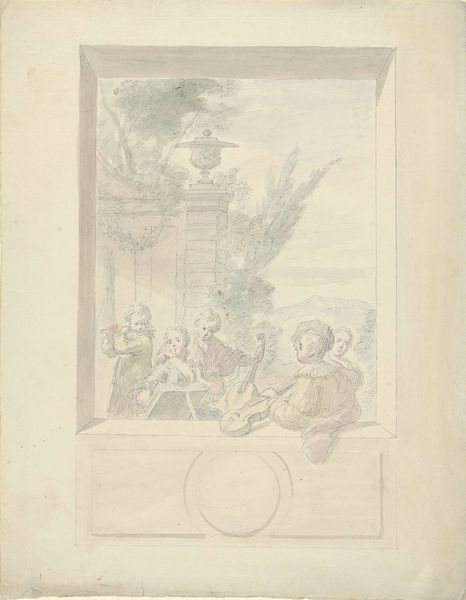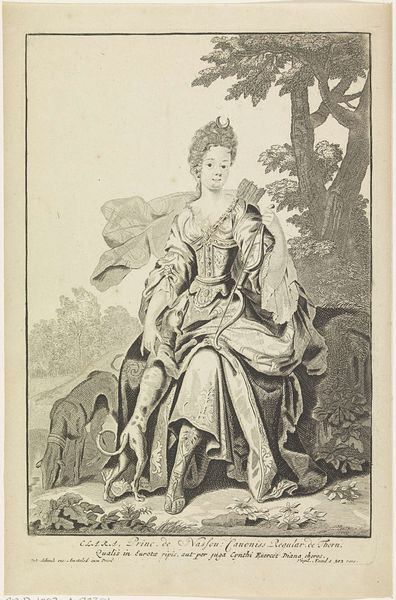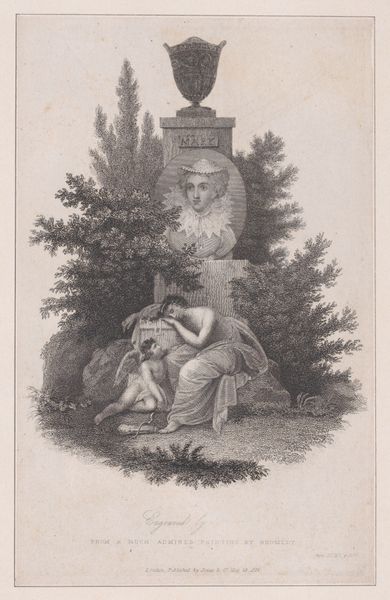
Ontwerp voor een zaalstuk: standbeeld van zintuig Reuk, daarnaast een vrouw en kind met bloemen 1715 - 1798
0:00
0:00
drawing, watercolor, pencil
#
portrait
#
drawing
#
neoclacissism
#
allegory
#
landscape
#
watercolor
#
coloured pencil
#
pencil
Dimensions: height 388 mm, width 242 mm
Copyright: Rijks Museum: Open Domain
Dionys van Nijmegen created this design for a room decoration with pen and watercolor, likely in the mid-to-late 1700s. It depicts a statue representing the sense of smell, flanked by a woman and child with flowers. Executed in the Dutch Republic, the drawing reflects the period's fascination with allegorical representations and the senses. Gardens, like the one in the background, were potent symbols of wealth, leisure, and refinement. The statue and carefully arranged figures, underscored a hierarchical view of society and a controlled vision of nature. This was a period when the merchant class was consolidating power, commissioning art that projected their aspirations of elegance and learning. Art historians consult estate inventories and architectural plans to learn more about the social context and use of drawings like this one. By examining these materials, we can better understand how art served to shape and reflect the cultural values of the time.
Comments
No comments
Be the first to comment and join the conversation on the ultimate creative platform.
